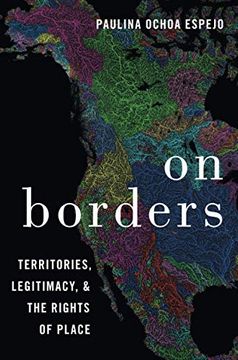Share
On Borders: Territories, Legitimacy, and the Rights of Place: Territories, Legitimacy, and the Rights of Place: (in English)
Paulina Ochoa Espejo (Author)
·
Oxford University Press
· Paperback
On Borders: Territories, Legitimacy, and the Rights of Place: Territories, Legitimacy, and the Rights of Place: (in English) - Paulina Ochoa Espejo
Choose the list to add your product or create one New List
✓ Product added successfully to the Wishlist.
Go to My WishlistsIt will be shipped from our warehouse between
Friday, June 28 and
Monday, July 01.
You will receive it anywhere in United States between 1 and 3 business days after shipment.
Synopsis "On Borders: Territories, Legitimacy, and the Rights of Place: Territories, Legitimacy, and the Rights of Place: (in English)"
When are borders justified? Who has a right to control them? Where should they be drawn? Today people think of borders as an island's shores. Just as beaches delimit a castaway's realm, so borders define the edges of a territory, occupied by a unified people, to whom the land legitimately belongs. Hence a territory is legitimate only if it belongs to a people unified by a civic identity. Sadly, this Desert Island Model of territorial politics forces us to choose. If we want territories, then we can either have democratic legitimacy, or inclusion of different civic identities―but not both. The resulting politics creates mass xenophobia, migrant-bashing, hoarding of natural resources, and border walls. To escape all this, On Borders presents an alternative model. Drawing on an intellectual tradition concerned with how land and climate shape institutions, it argues that we should not see territories as pieces of property owned by identity groups. Instead, we should see them as watersheds: as interconnected systems where institutions, people, the biota, and the land together create overlapping civic duties and relations, what the book calls place-specific duties. This Watershed Model argues that borders are justified when they allow us to fulfill those duties; that border-control rights spring from internationally-agreed conventions―not from internal legitimacy; that borders should be governed cooperatively by the neighboring states and the states system; and that border redrawing should be done with environmental conservation in mind. The book explores how this model undoes the exclusionary politics of desert islands.

